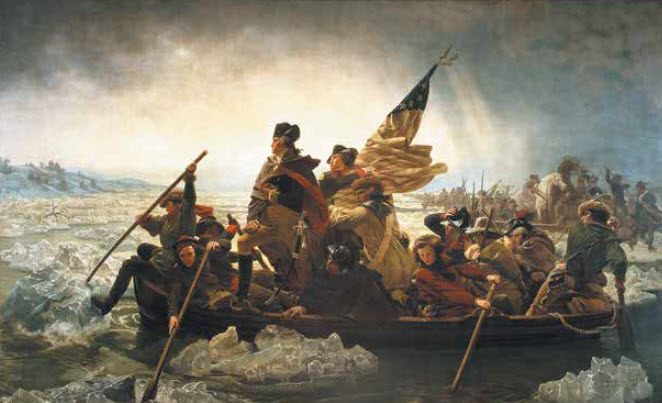Throughout history, weather has at times made all the difference between victory and defeat in war. There are those who feel that at times there has been “an appeal to heaven” that caused a supernatural intervention in the form of weather being altered. It has also been the test of leadership as to how to interpret the weather and “whether the weather” needs to be acknowledged or ignored, and how or if it will change troop movement.
Sometimes the results of the unexplained change have occurred unbeknownst to anyone prior to its arrival, and such was the case in the Gulf War. In 1991, the night before the Allies were due to liberate Kuwait, a windstorm hit, and not just any windstorm. Wind patterns in the desert are fairly predictable, and in this area the wind was known to always blow from the north to the south. A Saudi prince commented that it was highly unusual for it to blow from the south to the north, but it did, all night long. In the morning light, it was revealed that right in their path was an extensive mine field. Had they rolled out as planned, the results would have been devastating. Having endured more than one sand storm from the comfort of Uday Hussein’s hunting lodge on a base known as Radwaniyah, I can say that sandstorms are not usually greeted with gratitude. But in this case, gratitude was indeed in order.
During the Revolutionary War, two back-to-back situations occurred that were pivotal in America’s ultimate triumph over the British. The first was a storm that allowed Washington to cross the Delaware River undetected. It was a nor’easter, complete with snow, sleet, and fierce wind. That got them across, and then an inexplicable fog rolled in, which allowed them to get into position to attack the British at Trenton.
In the 20th century, one of the most famous “weather miracles” came to be known as the Miracle of Dunkirk. British soldiers were trapped and facing certain slaughter by the Germans. Again, pounding rain and a dense fog rolled in, and citizens in anything that floated went and got the soldiers and “rowed” them back to safety. Winston Churchill called it a “miracle of deliverance,” and it made it possible for the British troops to regroup and ultimately defeat the Germans.
The Invasion of Normandy, known as D-Day, was also affected by weather as well as consummate leadership. We celebrate it every year on June 6, but the original date to begin the worst and most important battle in the European theatre was supposed to begin on June 5. There was a storm rolling in with high winds that would have made navigating the choppy seas risky at best. Radar was brand new, and a British officer consulted with General Eisenhower, indicating that a break in the weather would occur the next day. Ike knew that the Germans were waiting for them, and had to decide weather to risk them finding out any more about the portended invasion, or delay a day and plunge head long into the fray. Ike chose the latter, and while D-Day was indeed the ‘Longest Day,’ we are still free because of what Ike called … the most agonizing decision of my life.
Ike further explained his decision: I had to decide to postpone by at least twenty-four hours the most formidable array of fighting ships and of fighting men that was ever launched across the sea against a hostile shore. … If there were nothing else in my life to prove the existence of an almighty and merciful God, the events of the next twenty-four hours did it … The greatest break in a terrible outlay of weather occurred the next day and allowed that great invasion to proceed, with losses far below those we had anticipated …”
The shoulder flash on the uniforms of those who landed included a rainbow, and interestingly, on the day of June 6, a rainbow appeared over the beaches of Normandy, apparently bright enough that some pilots reported flying through it before the invasion began. Whether the weather makes a difference in battle, you will have to decide. I certainly am convinced that prayer does.
By: Ali Elizabeth Turner








